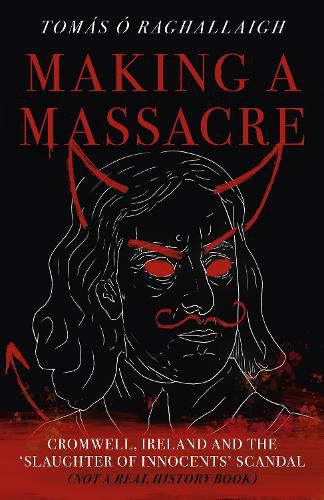Readings Newsletter
Become a Readings Member to make your shopping experience even easier.
Sign in or sign up for free!
You’re not far away from qualifying for FREE standard shipping within Australia
You’ve qualified for FREE standard shipping within Australia
The cart is loading…






If history were music, then the genre of this book would be punk. For nearly 400 years, it has been widely accepted that Oliver Cromwell committed civilian atrocities at Drogheda and Wexford in 1649, thus adversely infecting Anglo-Irish relations for that entire period. As well as other events in Irish history, Cromwell in Ireland has often been weaponised in the North of Ireland. Still, today, emotions about this topic run very deep. Imagine for a moment that Cromwell is completely innocent of these charges of genocide: the overwhelming verdict of history thus far. Imagine also a scenario in which this anomaly in the teaching of Irish history were discovered by a non-historian, an amateur who failed second-level history. This is that story. This is an accurate (and sideways) account of one man's lone battle to overturn this miscarriage of historical justice - two middle fingers to mainstream academia. Most significantly, this is the story of the pushback the author has encountered from academics, in general, who have closed ranks in their reluctance to embrace incontrovertible facts. This is the uncomfortable truth that challenges Ireland's role of the ultimate victim of the seventeenth century's conflicts and how this historical period has been - and still is - profoundly abused to suit the Saorstat Eireann narrative.
$9.00 standard shipping within Australia
FREE standard shipping within Australia for orders over $100.00
Express & International shipping calculated at checkout
Stock availability can be subject to change without notice. We recommend calling the shop or contacting our online team to check availability of low stock items. Please see our Shopping Online page for more details.
If history were music, then the genre of this book would be punk. For nearly 400 years, it has been widely accepted that Oliver Cromwell committed civilian atrocities at Drogheda and Wexford in 1649, thus adversely infecting Anglo-Irish relations for that entire period. As well as other events in Irish history, Cromwell in Ireland has often been weaponised in the North of Ireland. Still, today, emotions about this topic run very deep. Imagine for a moment that Cromwell is completely innocent of these charges of genocide: the overwhelming verdict of history thus far. Imagine also a scenario in which this anomaly in the teaching of Irish history were discovered by a non-historian, an amateur who failed second-level history. This is that story. This is an accurate (and sideways) account of one man's lone battle to overturn this miscarriage of historical justice - two middle fingers to mainstream academia. Most significantly, this is the story of the pushback the author has encountered from academics, in general, who have closed ranks in their reluctance to embrace incontrovertible facts. This is the uncomfortable truth that challenges Ireland's role of the ultimate victim of the seventeenth century's conflicts and how this historical period has been - and still is - profoundly abused to suit the Saorstat Eireann narrative.